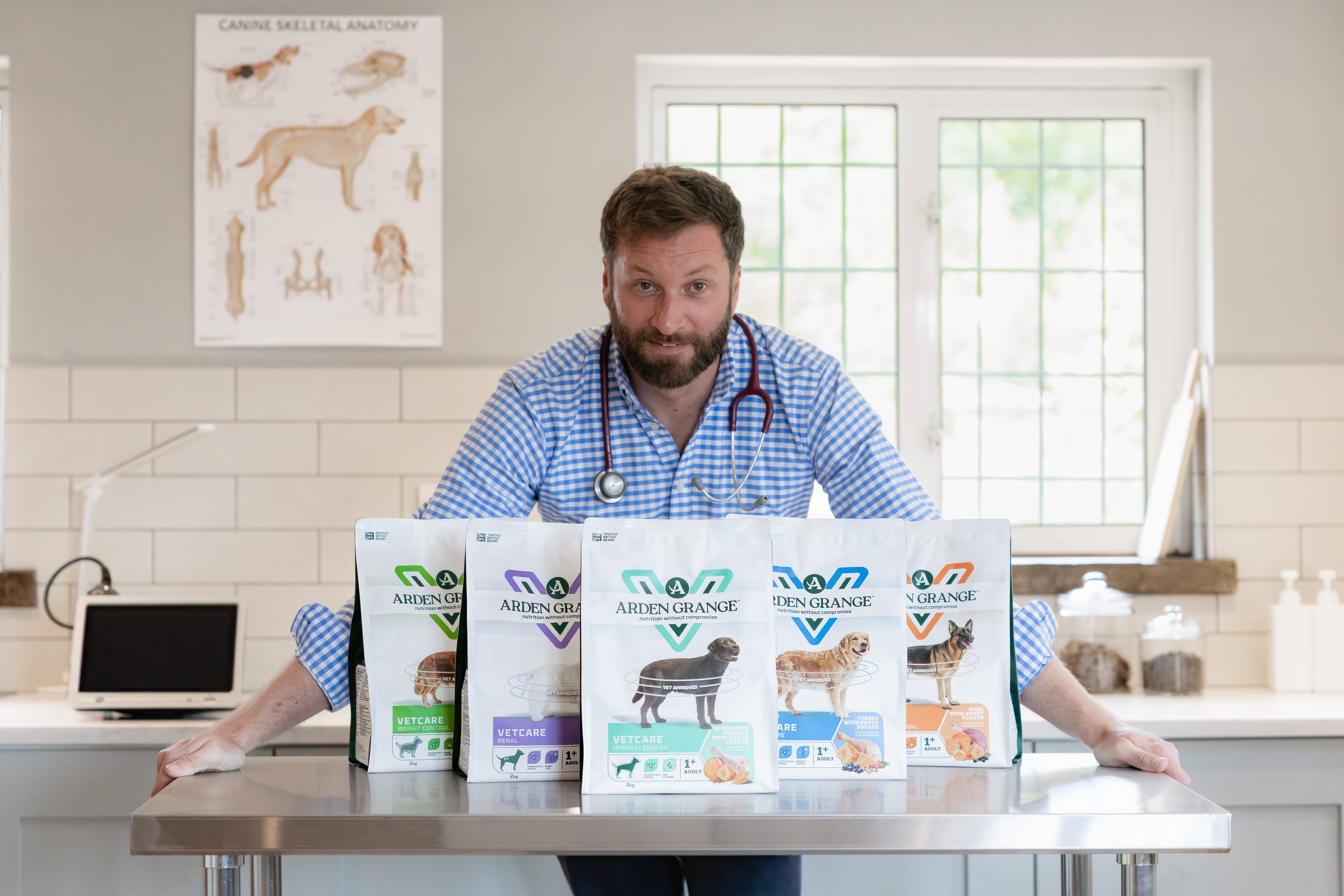In the dog house: the art of running a pooch-friendly hotel

Former television presenter Caroline Flack made headlines this month when it was revealed that her pet pooch was staying at a luxury hotel for dogs, with room stays sold to the tune of £80 a night.
To some, it may seem like an extravagance, but to others, dog hotels are becoming a nondescript, everyday part of 21st Century pet care. But where did this business model originally spring from? One of the first ever dog hotels to take flight was, perhaps unsurprisingly, in the centre of Los Angeles over 10 years ago, when Alissa Cruz and her husband decided to set up D Pet Hotel in the heart of Hollywood.
At the time, Cruz said: “We love to be pampered on holiday, so why shouldn’t our dogs?” And indeed, the site was one of the first to bring canine luxury to a new level. Custom photoshoots, a dog boutique and its very own D-Chauffeur service are all on offer. “No request is too much for us. We can accommodate whatever the client wants”, she says. How very LA.
But slowly, a milder format has set itself amongst the less bombastic British countryside. In the past few years, there has been a real growth in the popularity of dog hotels, and our idea of the traditional dog kennel is perhaps on its way out.
The dog lovers behind the business
One such business is Bath Country Pets, a luxury hotel in the beautiful Bath countryside. Run by Emma Edwards, the dog accommodation is purpose-built just 50 metres from her family home. Cosy and comfortable dog bedrooms sit adjacent to their very own lounge, with a wood-burner, rugs and toy baskets all on offer. Classical music and lavender oil fill the rooms, soothing the potentially homesick guests.
As to why Edwards set up the business, she says there was a “clear gap in the market” for families who have canine pets but would not feel comfortable leaving them in a traditional kennel environment. “This was a new and exclusive niche that we felt we could fill, so we set about creating the perfect place for them to stay,” she adds.
All in all, the concept took about 12 months to plan: eight months to build the site, and three months to prepare for its launch. “Our business was built around a belief that we wanted to offer a service which was entirely different from a kennel set up and provide choice to the consumer.”
Claire Watson runs a similar business herself, aptly entitled Bed and Biscuits. The Swanley site has a limited number of “suites”, and all guests are treated to a raised bed and heating. There is plenty of room for dogs to play and romp, whilst toy boxes and paddling pools offer the finishing touches.
Like Edwards, she began the venture when struggling to find a place for her own dogs to stay. At the time, kennels had a “very bad reputation”, says Watson. “We wanted somewhere where dogs would feel at home, where they would be able to be together and still enjoy socialising, long exercise sessions as well as cuddles and lots of affection.”
So many of the kennels she visited were “cold, unwelcoming and open to the elements”. “Rows upon rows of dogs locked in cages”, she says, “counting down the days until they could leave. Not being able to find what we needed, we cancelled our holiday, but the germ of an idea grew.”
Meanwhile, Nick Amsel, who runs Hayfields Dog Hotel in Northamptonshire, decided to set up his dog hotel as he found the idea “much more involved and infinitely more rewarding” than running a kennel, for which he says you would need “a heart of stone”. “I personally know each and every guest and couldn’t bear knowing any were unhappy here. Of course there are many problems, they wouldn’t be dogs if they didn’t keep us busy. It’s a steep learning curve to be sure.”
And for pet owners, what are the paws-itives?
It may be an “infinitely rewarding” venture for business owners, but for pet owners who are thinking about a holiday, why exactly should they use these services? Why should they consider turning away from kennels and spending that little bit extra on their pets?
“We offer more than just a safe pair of hands”, says Edwards. “Our aspirations are to deliver a positive ‘holiday experience’ for our guest. Our objective is that any guilt of leaving their beloved pet is set aside as they can see, hear and feel that their dog is having a phenomenal time.”
“I personally think the main advantage is the facilities that these hotels provide, rather than kennels”, adds Watson. “And because these facilities are typically smaller than kennels tend to be, they can offer much more personal care for each dog and work with each owner to ensure they are continuing with the same routines and protocols that they have at home.”
Trouble in paradise
While this luxury accommodation may seem a problem-free affair thus far, pet owners still have a right to be cautious with these setups. The communal nature of hotels like this can spell trouble if some guests have behavioural problems, or simply don’t ‘click’ with the guests around them.
Alex is a pet owner from Kent whose own dog Harley was attacked in a similar accommodation. “Another dog just got too rambunctious with him”, she said. “I think the close yet open living quarters didn’t help. In the future, we will probably go back to using kennels – I’ve found the standards of kennels have really risen over the past five or so years, but that degree of separation means the less sociable dogs can be monitored in a way that hotels might not be able to do.”
In this regard, kennels offer a failsafe by segregating dogs for much of the day, while still allowing for monitored playtime. However, some dog hotels have found a way around this. Edwards, for example, holds trial days for applicants before they come to stay, so that she can examine their behaviour and fit to the environment and the other guests around them. She believes she turns away around 10% of applicants, and it is clear that she takes the process very seriously.
“That is something we have learned to do carefully and provide constructive but honest feedback to our potential clients”, she says. “We have now developed a specific programme of activities and a scoring system for our trial days so that we have a clear cut basis on which to make our decision.”
And for most of the time, guests do get on well together. “At meal times we prepare and feed dogs in ones or twos to avoid any issues. And it is very special in the evenings when they have all had a busy day to see them settle down together. Sometimes we see proper friendships bloom,” she says.
If the price is right
Of course, with luxury comes a price tag. Recent research revealed that the average cost to kennel a dog is £17.35 per night, or £243 for a two-week stay. These prices included all the basics: food, heating and exercise. Whilst no such study has been done with dog hotels, a Google search reveals the average one-night stay in this type of accommodation comes in at around £36. Some hotels, like the Canine Country Club in Devon, peak at £48 per night, while the Country Dog Hotel in Somerset offers a VIP package for £80.
Nonetheless, it seems that prices are not deterring people from using these services. “We have seen an unprecedented growth in customers”, says Watson. “We have also gained more staff and now have a really good reputation, with demand outstripping capacity for a majority of the year.”
Indeed, just last Christmas, searches for ‘dog hotels’ peaked at 100 per week. This may not seem like much, but it’s a marked difference from the 24 searches during the same week 10 years ago. A further peak at Google statistics reveals that on average, searches for ‘dog hotels’ have trumped ‘dog kennels’ by a considerable amount over the past three months.
Meanwhile, Edwards’ patrons travel from all corners of the UK: Manchester, Kent, Essex, and even St. Ives. The geographical length and breadth of clientele reflects just how far owners are willing to go to provide their dog with the best care.
In the 18 months that Bath Country Pets has operated, Edwards has also found that almost all customers return to use the service. “We are constantly juggling the expectations of existing loyal customers who want there always to be availability, with the needs of new and potential customers.”
Barking up the right tree
While Edwards has enjoyed her own success, does she believe there is still a gap in the market for similar businesses? “I do, but it is niche to deliver the levels of care that we offer. Not everyone is able to afford it and there are lots of other alternatives available, home boarding, traditional kennels and house sitters of course”, she says. Nonetheless, she believes it is “inevitable” that more businesses of this type open up.
Amsel also believes that this business model will thrive among the UK pet industry in coming years. “As a nation, we love our pets, but we’re behind in terms of general welfare. Thankfully consumers are becoming more savvy and demanding higher standards. This is a good thing.”
Although standards of kennels have increased over the years, says Watson, they are still “very basic at best”. And in this day and age, “dogs are much treated as members of the family and therefore they are used to much more interaction and care. We do a lot more than keep a dog in a kennel for a week whilst their owners are away. Kennels have always had a bad reputation, but it also helps owners to go away knowing their dog is staying somewhere that treats them as an individual”.





